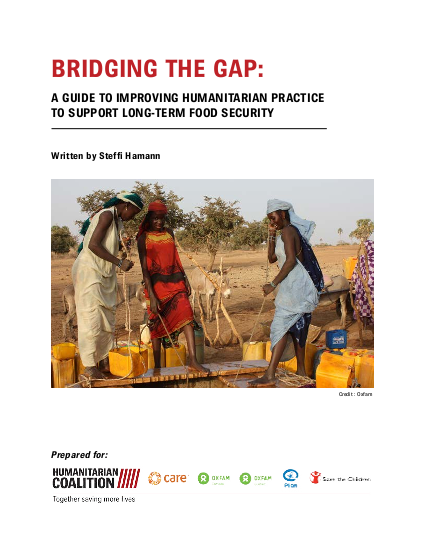
These guidelines provide recommendations to humanitarian practitioners who intervene during acute phases of chronic food insecurity. They intend to contribute to the improvement of humani- tarian practice by pointing out strategies to bridge an existing gap between short-term humanitarian programming and longer-term development objectives. Based on interviews and focus group dis- cussions with experienced project staff involved in the 2012 Sahel drought response, this document addresses a number of features of humanitarian interventions that hamper the support of long-term food security objectives. These features include the time pressure that typically characterizes emergency interventions, the frequent lack of government capacities in intervention zones, restric- tive donor funding criteria, insufficient beneficiary involvement in humanitarian activities, and a lack of intra- and inter-agency coordination.